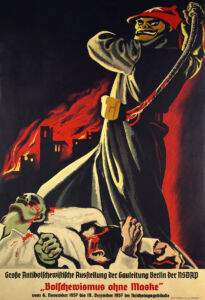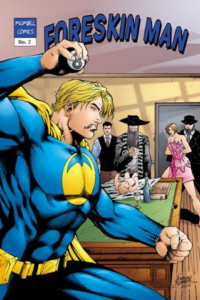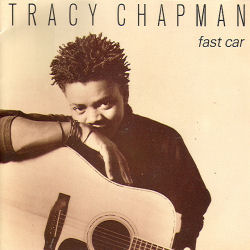I enjoyed Fred Reed’s April 24 essay “Ignorance, Its Uses and Nurture,” which refers to universal suffrage in anything larger than a small town as a “crackpot” idea. In a mere thousand words, Reed painted the American public as entirely incapable and unqualified to understand United States foreign policy, let alone vote on it. Therefore, he concludes, the entire democratic system is a sham. Yes, the statistics he presents bolster his point admirably. But maybe not as much as epic burns such as this one: (more…)
Tag: Spencer J. Quinn
-
Brian Moore’s 1985 novel Black Robe thankfully slipped through the cracks of political correctness. It tells the story of French missionary Paul Laforgue, who travels to the Canadian wilderness in the early seventeenth century to bring Christianity to the indigenous Savages of North America. Yes, Moore capitalizes that term when describing the Indians because, according to his research, this is the very term (les Sauvages) the French used back then. Moore explains this in his author’s note, along with the circuitous manner in which he stumbled upon this fascinating subject (more…)
-

Image courtesy of Wikipedia Commons.

Image courtesy of Wikipedia Commons.
1,566 words
It seems that there has not been a worse time since the formation of Israel to be a diaspora Jew.
The friends and allies that the diaspora has traditionally counted on are beginning to turn on them with the same determination and ferocity that gentiles have always possessed on the eve of a pogrom or mass expulsion. (more…)
-

Black members of the live studio audience on The Oprah Winfrey Show celebrating news of the O. J. verdict on October 3, 1995.
1,095 words
I think it was the outcome of the O. J. Simpson trial in October 1995 which first introduced me to tribalism. As a young man I had seen it around me, especially among blacks — but also among Jews and Asians. I knew what it was, and I was fairly well-versed in its literature. (more…)
-
2,347 words
Travis LeBlanc dropped a lot of wisdom and perspective on us regarding the Second World War and the Jewish Holocaust in two recent essays for Counter-Currents. Judging from the comments in response to them, it seems the Counter-Currents readership is well aware of this and appreciates his efforts. I certainly do. Although he expressed a fair number of historical opinions regarding the world wars, his main thrust was to discourage what he calls “spergery,” or how the excessive, specialized interest in the Second World War among dissidents can quickly drive a political movement into the weeds. Or even cause it to crack up altogether through absurd purity spiraling: (more…)
-
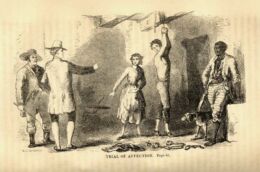
Trial of Affection, an illustration from Richard Hildreth, The White Slave; or, Memoirs of a Fugitive (1852).
1,869 words
One of the trump cards the Left has over the Right is how it asserts the absolute equivalence of slavery and evil. This is an axiom for the Left, and a holy axiom at that. Leftists will not allow this axiom to be questioned because it is one of their prime sources of power. Like the Ark of the Covenant, it represents Man’s intersection with his egalitarian god. (more…)
-

Fani Willis (photo courtesy of Wikipedia)

Fani Willis (photo courtesy of Wikipedia)
2,443 words
Corruption can be funny. This is especially the case when someone is bad at it, because then it ventures into the realm of comedy. Ultimately, however, it isn’t funny. It is the rust that corrodes civilizations. It rewards the lazy, the selfish, the cunning, and it punishes and demoralizes everyone else — especially if the perpetrators get away with it.
I once knew an Indian woman who said that she admired the fact that politics in the United States lacks corruption. (more…)
-
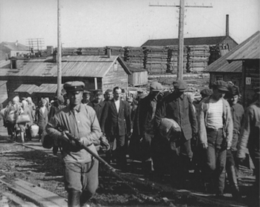
This may soon be a common sight in Scotland. Prisoners arriving at the “Solovetsky Special Purpose Prison Camp in 1927 or ’28.
1,454 words
One of the points Aleksandr Solzhenitsyn bangs home a lot in his classic work of historical research, The Gulag Archipelago, is that political prisoners in the Soviet gulag system were of lower status and were treated worse than actual criminals, such as rapists, thieves, and murderers. This is exactly what happens when a hostile elite takes over a nation. At best, it doesn’t trust the people. (more…)
-
1,159 words
The wellspring of most, if not all, forms of race denialism is ignorance. This doesn’t necessarily mean that the race denialist himself is ignorant. Richard Lewontin and Stephen Jay Gould certainly weren’t. It does mean, however, that you cannot promote race denialism without professing a certain level of ignorance about the mysterious black box we call the human brain. (more…)
-

Nathan Cofnas (from his Twitter/X feed)

Nathan Cofnas (from his Twitter/X feed)
2,399 words
Nathan Cofnas first came to my attention in 2018 when he became the first mainstream academic to challenge Kevin MacDonald regarding his classic work of counter-Semitism, The Culture of Critique. He engaged with Prof. MacDonald point for point over the course of several weeks regarding the work’s merits and demerits, producing academic theater that was both tedious and fascinating; perhaps a little more of the latter. (more…)
-
The Icelandic government considered a bill in early 2018 banning the non-therapeutic circumcision of newborn boys. If passed, the law would have found such acts punishable by up to six years in prison. The reason for the ban, according to Silja Dögg Gunnarsdóttir, the member of Parliament who created the bill, was simply humane concern for boys’ welfare. “The bill only wants to protect the rights of the child to control his own body, and to make sure that no unnecessary surgery that could potentially harm the child is performed that early,” she stated. Makes sense, right? (more…)
-
Five years ago I wrote an essay called “Rediscovering a Song” in which I discussed my mistaken initial assessment of “Cat’s in the Cradle,” the famous 1970s hit by Harry Chapin. I had put that assessment in a box in my mind, sealed it up, and never bothered to reopen it until many, many years later: (more…)
-
If there is a friendly divide within the dissident Right, it might very well be between White Nationalists and white advocates. The difference between the two groups should be plain: the former seek separation and self-determination, and the latter political advocacy in a multiracial country. (more…)


